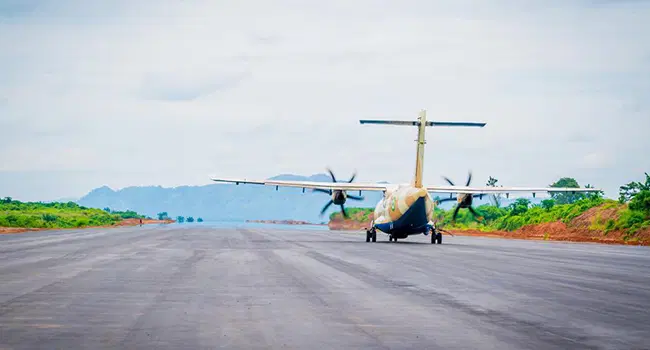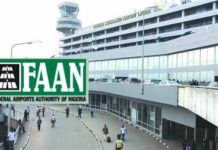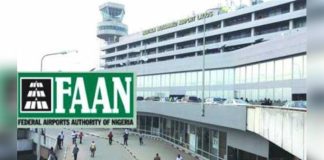🌿 Ruzu Non-Alcoholic Herbal Bitters
Ruzu Non-Alcoholic Herbal Bitters is a natural health supplement specially formulated to:
- ✅ Promote general wellness
- ✅ Detoxify the body
- ✅ Support the treatment of various ailments
Made from a powerful blend of 100% organic and medicinal herbs, Ruzu is completely alcohol-free, making it ideal for:
- 👪 All age groups
- 🌱 Health-conscious individuals
- 🌿 Anyone seeking non-alcoholic herbal remedies
Whether you're looking to boost your vitality, cleanse your system, or support healing the natural way, Ruzu Bitters offers a trusted herbal solution.
Both the construction and upkeep of airports need large sums of money. Permanent technical and administrative staff are necessary for an airport to function, and they must labor to cover their costs even if they are not making money. However, it seems that building an airport in their state is the top priority for practically every governor. Given that the Nigeria Civil Aviation Authority (NCAA) reports that just three airports handle over 90% of all passenger travel throughout the nation, we are unable to see the rationale for governors’ fixation.
According to market predictions, Nigeria’s low per capita income will prevent a sharp increase in air travel. However, Olubunmi Kuku, the managing director of the Federal Airports Authority of Nigeria (FAAN), recently stated that 19 of the 22 federal airports were receiving subsidies since their passenger traffic did not match their operating costs. Additionally, Kuku stated, “We support either aviation security or fire and rescue services at about six or seven airports that are either owned by state governments or private individuals or entities.”
Only the airports in Uyo and Asaba are currently considered sustainable among all state-built airports, and this is because the governments of Akwa Ibom and Delta States provide financial support for them. For example, Kebbi State constructed an airport with modern amenities a few years ago. Other than charter services, it hardly has any scheduled regular flights these days. The airport was given to FAAN to run at a significant deficit to the aviation organization since it was unable to break even. This also applies to other state-owned airports that the agency has taken over in Bauchi and Gombe.
Therefore, aside from political considerations, we fail to see why more airports should be built for the states. Regretfully, the states are merely emulating the federal government’s poor example. We questioned the reasoning behind the federal government’s 2020 approval of states to build airports in Anambra, Benue, Ekiti, Nasarawa, and Ebonyi States while taking over those constructed by Kebbi, Osubi, Dutse, and Gombe States. Only six of the 26 airports under FAAN’s management have more than 5,000 aircraft movements annually. These six are essential to the survival of everyone else. The point we raised at the time is still unanswered: Why does the government need to burden the nation with additional cost centers during a time of limited resources when it is borrowing to fulfill obligations?
Since several of these airports have created a cluster, the claim that states cannot develop without an airport is untenable. If an investor is going to a specific area of Akwa-Ibom, he might need to land at Calabar Airport rather than Uyo Airport in order to reach his goal more quickly. Anambra Airport at Umueri is farther away from a businessman in Onitsha than Asaba Airport. Indeed, there are rumors that the air traffic controller at Asaba airport could direct a plane to land in Anambra’s Umueri airport.
Large sums of money that could have been used to provide other necessary infrastructure and other amenities are instead spent on unproductive endeavors as a result of building unfeasible airports. Because scheduled services cannot break even for commercial airlines due to limited passenger flow, the majority of these airports solely benefit the governors who use charter services to travel through them. When all is said and done, it is absurd that states are investing enormous sums of money to construct new airports.
















